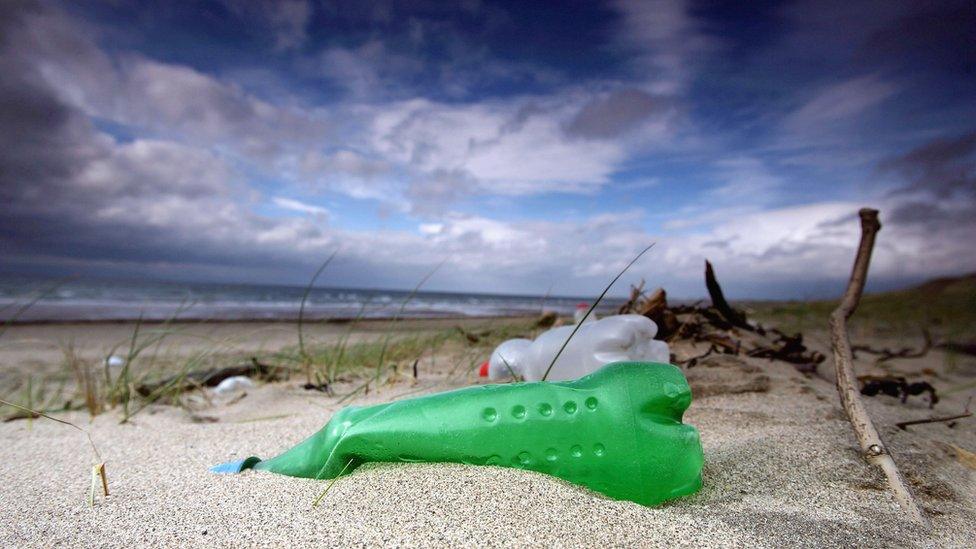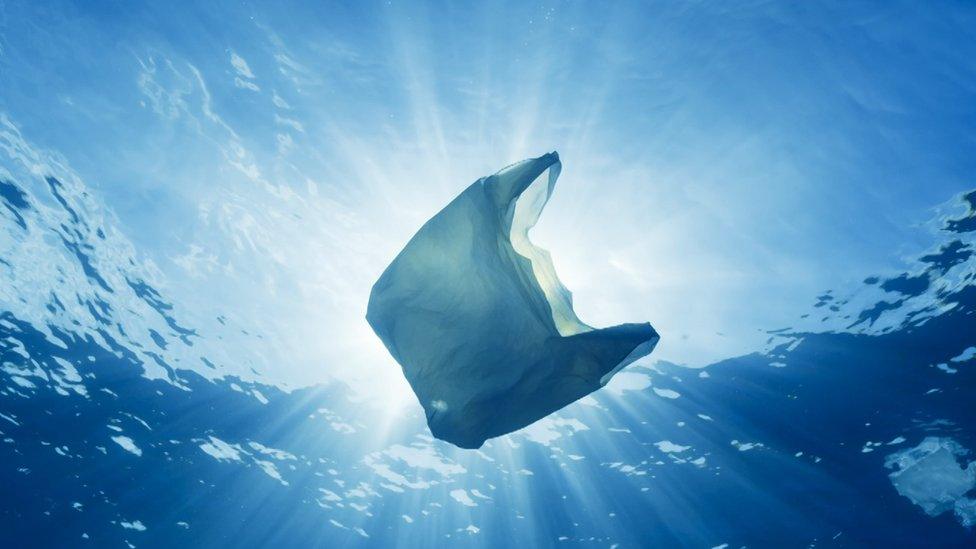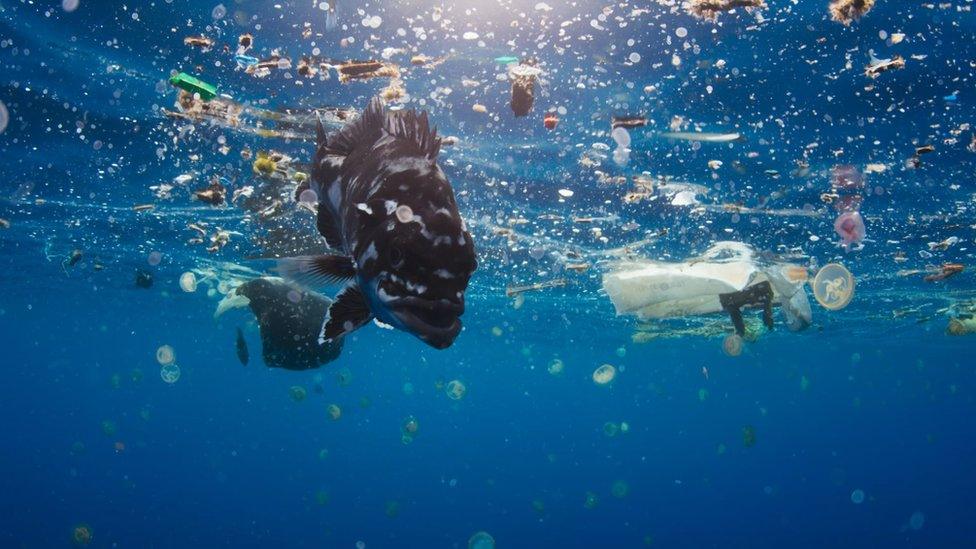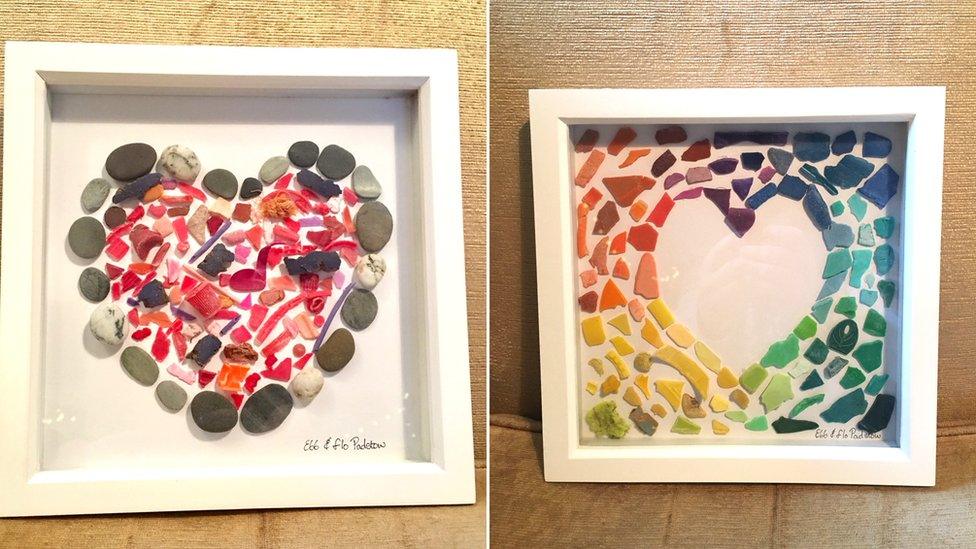Plastics tax eyed in litter crackdown
- Published

Chancellor Philip Hammond has called for views on how taxes on some plastics could benefit the environment.
Takeaway boxes, disposable cups, plastic wrap and cigarette filters are some of the plastics that the government is consulting on, external.
"Single-use plastics that have been used for only a few seconds can last centuries in the natural environment," Chancellor Philip Hammond said.
Taxes would be "a way of changing behaviour", the chancellor said.
How could a plastics tax work?
The charges could come in three forms, according to the BBC's environment analyst Roger Harrabin:
Taxes could be imposed on all single-use plastics. That's what the EU is considering. That would put up the cost of new plastic, and make it attractive either to recycle used items or switch to alternatives products like wood or bamboo. The money could go to the government - just like taxes on cigarettes or petrol.
Second, the government could mandate a charge on single use plastics, like the 5p plastic bag charge. Money from this doesn't go to the Treasury - it's used by retailers for good causes.
The Chancellor could mandate a deposit/return system in which you pay a deposit on a plastic bottle, then get the money back. This results in a very high recycling rate.
"Plastic is made from oil and gas, which are cheap at the moment. That removes the incentive for firms to recycle plastics because it's cheaper to make new plastic with raw material.
"Putting charges on single-use plastics that pollute the oceans could change that equation," adds Mr Harrabin.

What would a tax hope to achieve?
Mr Hammond says the aim of any tax would be to drive behavioural change, and stop plastic "littering our streets, countryside and coastline".
He emphasised that any revenues raised would not be used to boost the Treasury's coffers, but instead invested in research to create greener products and processes.
The consultation will look at the supply chain for single use plastics, at alternative materials, and plastics re-use and recycling, Mr Hammond added.
"When we hear of sea-birds on the Scottish coast choking on the waste that we produce, or see the global scale of the problem on the BBC's Blue Planet, it strikes at the very heart of our values of conservation," the chancellor said.
What measures are already in place?
In October 2015, the Treasury introduced a 5p charge on carrier bags. The measure has been effective with the number of bags used in England now down by 80%, according to the Treasury.
There is also a landfill tax for landfill operators introduced in 1996 which aimed to cut the amount of waste in landfill. The amount of tax has steadily increased to encourage recycling.
Big firms are also obliged to pick up a certain amount of the cost of recovering and recycling their products, including packaging, waste electronics, and vehicles. These obligations stem from European Union laws.

What does industry say?
Retailers use a lot of plastic packaging. Industry body the British Retail Consortium (BRC) said that retailers recognise the need to reduce plastic waste, and it's what consumers want.
But the BRC wants to see a "comprehensive strategy" from government as to how it "intends to shift to a circular economy where all resources are valued and reused when possible."
The industry body added: "All plastic packaging items are already 'taxed' when used under producer responsibility measures. Rather than introduce a second system, the current system could be reformed," it said.
- Published7 March 2018

- Published21 January 2018
